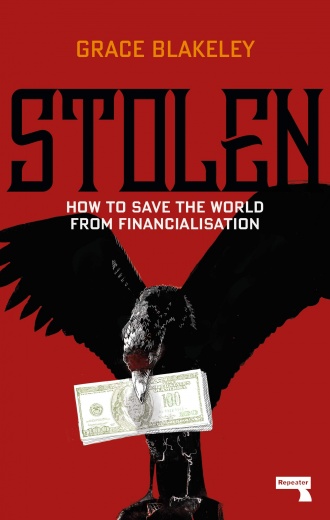This is the last article you can read this month
You can read more article this month
You can read more articles this month
Sorry your limit is up for this month
Reset on:
Please help support the Morning Star by subscribing here
IN THE last year, I’ve read or listened to a number of things I’d put on the list of any left activist’s need-to-know list, be they working on an industrial dispute, an election campaign or in a social movement.

Jane McAlevey’s No Shortcuts is a no-nonsense approach to the long-term deep level of organising in communities everywhere that the left needs to undertake if it has a hope of making the best of the mixed possibilities of the moment.
Anat Shenker-Osorio’s Brave New Words podcast provides case studies of successful insurgent activities, while Joe Guinan and Christine Berry’s People Get Ready grounds campaigns in the broad brushstrokes of a dynamic political strategy for the left inside and outside political institutions.
Joining that list is Grace Blakeley’s Stolen, which provides context by detailing the systemic mutations that created our collapsing casino economy, how they came to be and how they might be tackled.
Using human stories, generally accessible language and a clean, crisp style, this is not a simplifying Economics for Dummies-style book.
It takes on topics with the rigour and intricacy that they need but the choice and presentation of information is disciplined, with the clear intention of being a handbook for those trying to build organisations and movements that enable this turbulent and contingent political moment to be navigated.
One way Stolen does this is in identifying the “who” and “why” in recent history, detailing the economic stagnation of the 1970s which gave rise to the end of heavy industry and its replacement with high finance, creating an unstable series of bubbles that eventually broke in 2008.
To understand where human power and influence lies in the processes usually understood as “natural” functions of the current market economy, Blakeley’s forensic tracking reveals the real intentions and beneficiaries of each new move in the development of neoliberal political economy.
Researching the likes of the free-market Mont Pelerin Society, well-connected asset-stripper Lord Hanson and various luminaries of the Thatcher and Blair years could easily make one a conspiracist, believing that political and economic corruption is behind our current crisis and a “clean” productive capitalism could restore fairness and normality.
Blakeley creditably avoids such arguments and links the general incentives of capitalist development to the specific operational decisions taken by governments and sections of capital.
It remains a book about capitalism rather than financialisation alone, which sets it apart from books like Shoshana Zuboff’s otherwise very worthwhile Age of Surveillance Capitalism, which argues only for removing the specific capitalist mutation that has created warped incentives.
The idea that the economy is not a neutral space for exchange and interaction but a set of structures that are been rigged against the many and for the few has regained currency in recent years as our capital city continues to be made into a speculative playground for the super-rich while a million people depend on foodbanks.
Stolen provides a clear account of the most egregious examples like this and looks at what could feasibly be achieved by a left government to engineer a redistribution of wealth and power more profound than the one achieved by Thatcher in, for instance, socialising finance.
As the left of the Labour Party has grown, the level of internal differences over ideas, assumptions and prescriptions has become clear. This can be healthy or lead to people on the same side talking past each other.
The recent crop of serious written contributions to the development of our movement and its understanding of the world can help effective discussions about our perspectives and use our differences to the overall benefit of what we are trying to achieve.
Stolen arranges information in a legible and useful way that will facilitate productive discussion. It is a book for action.
Stolen is published by Repeater Books, £10.99.







